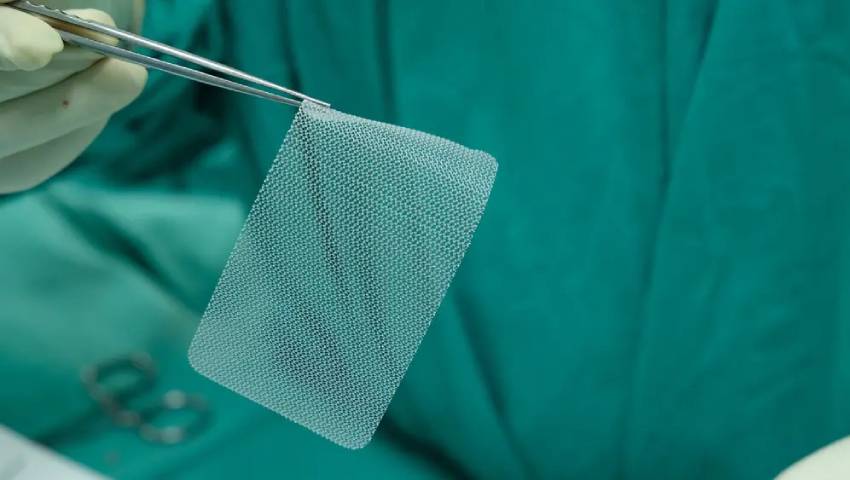
- 29/06/2024
- Dr. Srivatsan Gurumurthy
- 0 Comments
- Blog
Understanding Hernia Mesh Benefits, Types, and Considerations
Hernias are a common medical condition where an organ or fatty tissue protrudes through a weak spot in the surrounding muscle or connective tissue. They can cause discomfort, pain, and sometimes serious complications if left untreated. One of the most effective treatments for hernias involves using a mesh during surgery to reinforce the weakened area and reduce the risk of recurrence. In this blog, we’ll delve into the details of hernia mesh, its benefits, types, and important considerations.
What is Hernia Mesh?
Hernia mesh is a surgical implant used to provide additional support to weakened or damaged tissue. It acts as a scaffold, helping to strengthen the abdominal wall and prevent the hernia from recurring. The mesh is typically made from synthetic materials like polypropylene or from biologic materials derived from animal tissues.
Benefits of Using Hernia Mesh:
- Reduced Recurrence Rates: Mesh significantly lowers the chances of hernias recurring compared to non-mesh repairs.
- Improved Surgical Outcomes: Mesh repairs often result in faster recovery times and reduced post-operative pain.
- Versatility: Mesh can be used for various types of hernias, including inguinal, incisional, and umbilical hernias.
- Minimally Invasive Options: Advances in surgical techniques allow for laparoscopic or robotic-assisted procedures using mesh, which are less invasive and offer quicker recovery.
Types of Hernia Mesh:
- Synthetic Mesh: Made from materials like polypropylene, these are durable and widely used for hernia repairs.
- Biologic Mesh: Derived from animal tissues such as porcine or bovine dermis, these meshes are more compatible with the body’s tissues and are often used in contaminated surgical fields.
- Composite Mesh: Combines both synthetic and biologic materials, offering the benefits of both types.
Considerations Before Hernia Mesh Surgery:
- Medical History: Discuss any allergies or previous reactions to surgical materials with your healthcare provider.
- Mesh Type: The choice of mesh depends on factors like hernia type, location, and your overall health.
- Risks and Complications: While rare, complications can include infection, mesh migration, and chronic pain.
Choosing the Right Approach:
Your surgeon will recommend the most suitable type of mesh and surgical approach based on your individual circumstances. Factors such as hernia size, location, and your overall health will influence this decision.
Conclusion:
Hernia mesh has revolutionized the treatment of hernias, offering improved outcomes and reduced recurrence rates compared to traditional repair methods. Advances in surgical techniques and materials continue to enhance patient recovery and satisfaction. If you suspect you have a hernia or have been diagnosed with one, consulting with a Dr. Srivatsan Gurumurthy is top Hernia Surgeon in Chennai and He is crucial to determine the best treatment plan for your specific needs.
At GEM Hospital, Chennai, we specialize in hernia treatment using advanced techniques and state-of-the-art mesh materials. Our team is dedicated to providing personalized care and ensuring the best possible outcomes for our patients. Don’t hesitate to reach out if you have any questions or concerns about hernia mesh or any other aspect of hernia treatment.
